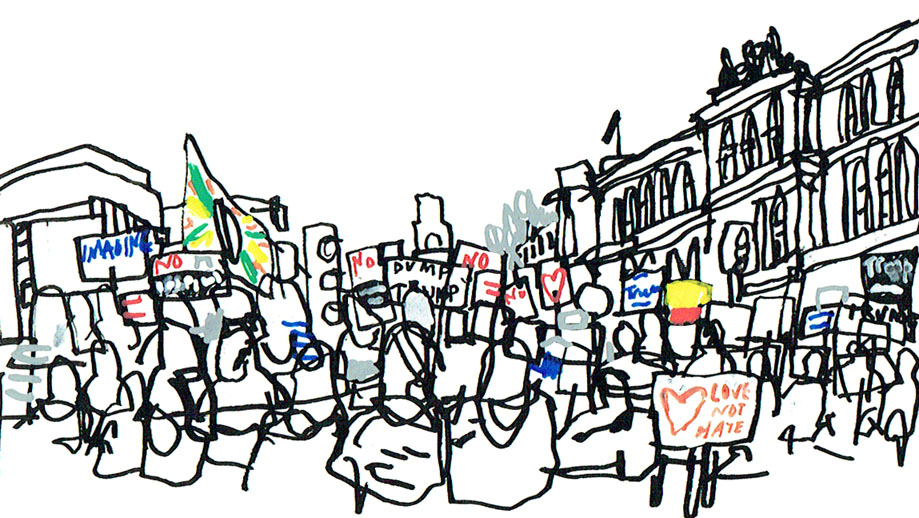Conference held at the University of Kent in May 2018 explores how reaching and mobilising the masses can affect the outcome of a movement.
Writes Katja May, Phd candidate
Emotional Politics – the Role of Affect in Social Movements and Organising took place on 31 May 2018 at the University of Kent in Canterbury. The conference aimed to bring together academics, activists, policy-makers and practitioners to share current concerns and developments in the research and practice surrounding emotion, organising and social movements. It was co-hosted by the Gender, Sexuality and Culture Research Cluster in the School of Social Policy, Sociology and Social Research (SSPSSR) at Kent and kindly sponsored by the Centre for Colonial and Postcolonial Studies, the School of English and the Centre for Gender, Sexuality and Writing. The organisers Katja May and Angela Matthews, both PhD students at Kent, had met during a workshop and their joint interest in affect, emotion and social transformation had been the driving force behind the conceptualisation of this conference. SSPSSR’s own Carolyn Pedwell, Reader in Cultural Studies, delivered the keynote titled “Digital Tendencies: Intuition, Algorithmic Thought and New Social Movements”.
Veteran activist and scholar Angela Y. Davis (2016) claims that in order for a movement to be effective it needs to mobilise the masses. As such, this conference asked:
• How does one reach the masses?
• What motivates people to join a movement, especially if they are not directly affected by the campaign’s agenda and the successful implementation of its goals?
• How can organisers and campaigners make use of emotion, feeling and affect as these circulate between subjects and objects?
• What problems may arise in the concrete experience of organising?
Speakers approached these questions from a variety of ways and their various disciplinary backgrounds ranging from sociology, geography and politics to literature, arts and journalism provided an interesting mix of different methodologies and critical arguments.
Already the call for papers had placed the conference in an international spotlight as, apart from a number of different European countries, the organisers received submissions from researchers in India, the US, Brazil and also a couple from the African continent. The final line-up included speakers from a variety of UK universities some of which were international students, for example from Egypt, as well as from institutions in Germany, France and Brazil. Papers reflected this international background of speakers and delegates in their diversity and coverage of different large and small-scale issues around the globe. Topics included:
– grass-roots activism to save public libraries in London
– social protests in Eastern Europe, namely Bulgaria and Bosnia
– the emotional language in Twitter narratives of contemporary Venezuela
– women leaders in the Brazilian Favela Housing Rights Movement
– queer maker spaces in China
– the Occupy and Black Lives Matter movement in the US
– the politics of motherhood in the battle against ISIS recruitment in France
It was a vibrant day full of dynamic and constructive discussion. The new international networks forged as part of the conference continue to grow through the social media networks set up by the organizers to facilitate further discussion and collaboration.
Please take a look at this Twitter story board for some live impressions from the conference.

